DENIECE WILLIAMS / “Deniece Williams Mixtape”
Sometimes at an informal gathering you be heading toward the door when someone walks in who you want to talk to, actually, you really want to do more than talk to them, so you unhitch you hat, and figure since there ain’t no one you leaving to go to you might as well hang, half hoping that you might score with who just walked in and inspired you to hit the pause button.
Last week we were in Chi with The Emotions—and they sounded so much, much better than I remembered them sounding. Hipper by far, so hip, made me think something was wrong with me that I had not deeply dug them before—like that fine person you stare at now but who you didn’t even glance toward back in eighth grade; it’s truly amazing how fine some people can get over time. Ya know, what I’m saying?
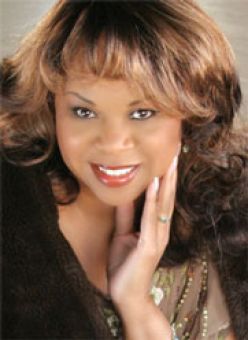 That sound enticing you to stick around is Niecy. Amazing. June Deniece Chandler was born (June 3, 1950) and reared in Gary, Indiana—the next big city down the road from Chicago. She remembers her first major public appearance.
That sound enticing you to stick around is Niecy. Amazing. June Deniece Chandler was born (June 3, 1950) and reared in Gary, Indiana—the next big city down the road from Chicago. She remembers her first major public appearance.
One day I was singing on the back porch, and I didn’t know that my aunt was watching me. I said ‘we will now have a selection from Deniece’ and I sang a song. She said ‘if I were to ask you to sing that song in church on Sunday, would you do it’? I told her I would do it. I did it. I was three years old, and I guess I’ve been singing ever since. —Deniece WilliamsFrom church to Chicago was the eventual move and in 1969 a single on the Lock label was released. Ironically, the song was titled “Mama I Wished I Stayed Home.” In 1970 the Lock label folded. Briefly, Niecy tried college with the intention to become a registered nurse. Although she gave up on college, she didn’t give up on music and a cousin who worked with Stevie Wonder turned Stevie on to one of Niecy’s six singles from her days recording in Chicago for the two labels Toddlin’ Town and Lock Records. Stevie liked what he heard, flew her to Detroit for an audition, and she got the job: one of a number of singers on a rotating basis who formed Stevie’s backing group Wonderlove. Wonderlove alumni include Minnie Ripperton, Lani Groves, Susaye Green, Shirley Brewer and Gloria Barley. Niecy is singing background on four of Stevie’s albums: Talking Book (1972), Innervisions (1973), Fulfillingness’ First Finale (1974) and Songs In The Key Of Life (1976), which is pretty much the heart and highpoints of Stevie Wonder recordings.
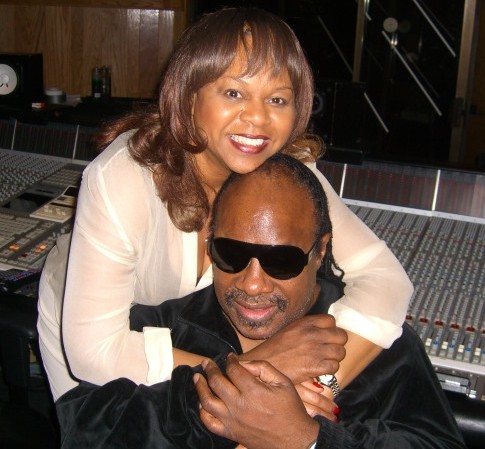 In 1973 Niecy moved out to Hollywood to join Stevie. Out in Cali is where Niecy met Patti Austin, who in turn helped Niecy break into the jingle singing business. Within a year or so, Niecy was not only singing with Stevie, and recording jingles, she also turned serious about writing songs. Eventually, songs she either wrote or co-wrote were recorded by a range of artists so wide it almost defies credibility.
Niecy’s songs were recorded by (among numerous others) The Whispers, Billy Preston, The Emotions, Frankie Valli and Johnny Mathis, on one end of the spectrum. In a completely different vein, rappers Will Smith, Eazy-E and Lil’ Kim have all sampled her songs. Niecy met Maurice White as a result of his interest in one of the songs she wrote. He was introduced to her music around the same time he was starting Kalimba Productions, his music production company. Maurice had signed The Emotions but was also looking for a female solo artist. You can guess the rest of the story…
Seventies Chicago was full of hipness and I realize now that, even though I would jet through the southside all the time, had family there, knew my way around, the el, the bus, my uncle’s second car, whatever, didn’t make no difference, I was so comfortable in Chi I took it for granted. Plus, I used to think of Chi as the black nationalist capital of Afro-America, bean pies and all. And, of course, that “all” included The Art Ensemble of Chicago, Sun Ra, Jerry Butler, Curtis Mayfield, the mighty, mighty Dells, The Chi-Lites, Gene Chandler with all his rainbows, and that Terry Callier dude, who is the best kept songwriting secret of the last 30 or 40 years. Chi-town—did I mention Ahmad Jamal and Ramsey Lewis, Von Freeman and his badass saxophone blowing son Chico Freeman?
All of that is why I shouldn’t be surprised at the hip-notism of Niecy’s Columbia recordings. You could say it was the church, and for sure she did start in church, and later on did leave pop to return to gospel but that is not the distinctive part of what Deniece brought in the door when she stepped to the mike. She had the chops and the attitude to fit into a sophisticated scene, music that was on another level from regular changes, romantic platitudes and heavy backbeats. This was pop at a whole other level. Perhaps because of all the music blowing through the windy city, when they did pop they did much more than pop.
In 1973 Niecy moved out to Hollywood to join Stevie. Out in Cali is where Niecy met Patti Austin, who in turn helped Niecy break into the jingle singing business. Within a year or so, Niecy was not only singing with Stevie, and recording jingles, she also turned serious about writing songs. Eventually, songs she either wrote or co-wrote were recorded by a range of artists so wide it almost defies credibility.
Niecy’s songs were recorded by (among numerous others) The Whispers, Billy Preston, The Emotions, Frankie Valli and Johnny Mathis, on one end of the spectrum. In a completely different vein, rappers Will Smith, Eazy-E and Lil’ Kim have all sampled her songs. Niecy met Maurice White as a result of his interest in one of the songs she wrote. He was introduced to her music around the same time he was starting Kalimba Productions, his music production company. Maurice had signed The Emotions but was also looking for a female solo artist. You can guess the rest of the story…
Seventies Chicago was full of hipness and I realize now that, even though I would jet through the southside all the time, had family there, knew my way around, the el, the bus, my uncle’s second car, whatever, didn’t make no difference, I was so comfortable in Chi I took it for granted. Plus, I used to think of Chi as the black nationalist capital of Afro-America, bean pies and all. And, of course, that “all” included The Art Ensemble of Chicago, Sun Ra, Jerry Butler, Curtis Mayfield, the mighty, mighty Dells, The Chi-Lites, Gene Chandler with all his rainbows, and that Terry Callier dude, who is the best kept songwriting secret of the last 30 or 40 years. Chi-town—did I mention Ahmad Jamal and Ramsey Lewis, Von Freeman and his badass saxophone blowing son Chico Freeman?
All of that is why I shouldn’t be surprised at the hip-notism of Niecy’s Columbia recordings. You could say it was the church, and for sure she did start in church, and later on did leave pop to return to gospel but that is not the distinctive part of what Deniece brought in the door when she stepped to the mike. She had the chops and the attitude to fit into a sophisticated scene, music that was on another level from regular changes, romantic platitudes and heavy backbeats. This was pop at a whole other level. Perhaps because of all the music blowing through the windy city, when they did pop they did much more than pop.
 Some of these tracks would fit on a Gene Ammons record, and certain sounds like the inside strings of the piano being strummed, some of that is dead out of Pharoah. Seventies Chicago wasn’t nothing to play with.
Of course the most common reference for Deniece's overall sound was Earth, Wind and Fire but that was just the license plate on the back of her music. Denise was more than just a female vehicle for Maurice White's musical ideas. If you can her musical ride a close inspection you would find serious horns up under the hood, a musical body by Charles Stepney, and meticulous attention to interior detail by Maurice White in addition to the overall sleekness of Niecy's songwriting.
For this Mixtape I’m focusing on music Niecy recorded for ARC (which was distributed and bankrolled by Columbia) and recordings directly on the Columbia label. To my ears, Niecy’s debut was an absolute marvel and suggested great music to come. But, to be both brief and blunt about the situation, what had happened was Charles Stepney died of a heart attack in May of 1976 and even though Niecy wrote or co-wrote all the songs on her debut album, for reasons I don’t know, Maurie White tried to produce Niecy using other people’s music.
I think the key to fully understanding the beauty of the Chicago Soul sound was Charles Stepney, who not only was singular and significant as an arranger, composer and musician but also extremely influential on others working on the Chicago scene. What Ramsey Lewis and Ahmad Jamal meant to the national piano scene, Charles Stepney meant to music arrangers. Deniece Williams knew the score. Here is her assessment of Stepney’s importance:
Some of these tracks would fit on a Gene Ammons record, and certain sounds like the inside strings of the piano being strummed, some of that is dead out of Pharoah. Seventies Chicago wasn’t nothing to play with.
Of course the most common reference for Deniece's overall sound was Earth, Wind and Fire but that was just the license plate on the back of her music. Denise was more than just a female vehicle for Maurice White's musical ideas. If you can her musical ride a close inspection you would find serious horns up under the hood, a musical body by Charles Stepney, and meticulous attention to interior detail by Maurice White in addition to the overall sleekness of Niecy's songwriting.
For this Mixtape I’m focusing on music Niecy recorded for ARC (which was distributed and bankrolled by Columbia) and recordings directly on the Columbia label. To my ears, Niecy’s debut was an absolute marvel and suggested great music to come. But, to be both brief and blunt about the situation, what had happened was Charles Stepney died of a heart attack in May of 1976 and even though Niecy wrote or co-wrote all the songs on her debut album, for reasons I don’t know, Maurie White tried to produce Niecy using other people’s music.
I think the key to fully understanding the beauty of the Chicago Soul sound was Charles Stepney, who not only was singular and significant as an arranger, composer and musician but also extremely influential on others working on the Chicago scene. What Ramsey Lewis and Ahmad Jamal meant to the national piano scene, Charles Stepney meant to music arrangers. Deniece Williams knew the score. Here is her assessment of Stepney’s importance:
He’s probably one of the most incredibly talented arrangers that the music industry ever had. He was a very integral part of my music and the whole production and arrangement of my music and my voice. There’s only been one other person in my musical life that has understood my music the way Charles Stepney did as an arranger, and he is Thom Bell. —Deniece WilliamsI certainly don't mean to minimize importance as an expressive vocalist with an incredible voice who was also an expert song-writer, which is an extremely rare combination, nevertheless the post-Stepney follow up albums just didn’t hit the sweet spot the way the debut did. And then there was a fortuitous development when Niecy was approached about recording with Johnny Mathis. Ok, we’re deep into pop city with that one but it was a match that worked and produced commercially viable product. Then came the idea of Niecy working with producer and songwriter Thom Bell.

“She’s a fantastic singer. You very rarely ever can find a singer that can do things that she does. Performing is not what she does good, but she’s a great singer. She has that 4-octave range, and her voice is extremely powerful. Like most great singers, you have to give them something that will challenge them. If you don’t do that, that’s boring. Deniece is one of the best singers that I’ve ever worked with in any key. She rarely ever, ever sings flat. All the time – early in the morning or late at night – she rehearses, practices, and she’s a clean, classy lady.” —Thom BellThey hit it off especially well as song writers—Thom writing the music and Niecy writing the lyrics. Most people, myself included, were not aware that Niecy was more than just an incredible singer with a four-octave range, she also possessed tremendous song-writing skills. Pairing her with Thom Bell, who previously had major success writing for and producing The Spinners and The Sylistics among many others, was a genius move.
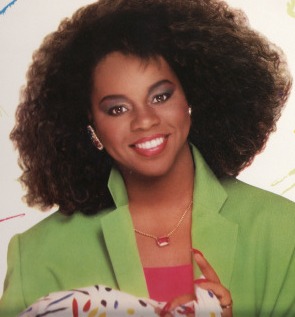 Thom Bell produced “Silly,” one of Niecy’s most enduring recordings.
Thom Bell produced “Silly,” one of Niecy’s most enduring recordings.
“Deniece had the song and she was trying to figure out how to do it, so I said ‘let me work on it a couple of minutes’ and I musically rewrote it. I just rewrote it as an arranger, not as a songwriter.” —Thom BellAdditionally, Thom Bell was responsible for Niecy’s hit version of the doo-wop classic “It’s Gonna Take A Miracle.” By the mid eighties Niecy decided to return to gospel music and eventually earned Grammy awards for four of her religious recordings: “I Surrender All” – Best Female Soul Gospel Performance 1987; “They Say” – Best Duo or Group Gospel Performance 1987; “I Believe In You” – Best Female Gospel Performance 1988; and This Is My Song – Best Pop/Contemporary Gospel Album 1999.
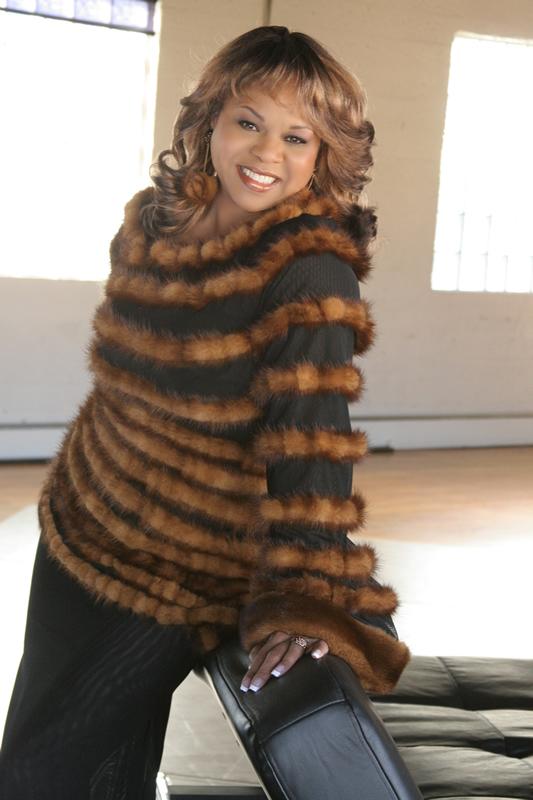 Although this Mixtape basically draws on the music culled from four albums and assembled on the Sony release Gonna Take A Miracle – The Best Of Deniece Williams, Deniece Williams has actually produced over twenty albums. The breadth and depth of her recording career notwithstanding, her work during the Columbia years represents the pinnacle of pop music produced by a female vocalist during the seventies and early eighties. During this period she collaborated with two of the greatest arrangers of popular vocal music, Charles Stepney and Thom Bell. Listen, and you too will be so enraptured that…
Oh, look at what time it is. I was supposed to be long gone by now. So, ah, see you around, huh, Niecy. I’m definitely going to be checking you out. It would be silly of me not to.
—Kalamu ya Salaam
P.S. I’ve got to hip yall to a superb overview of Deniece Williams’ career on the Soul Express website written by Heikki Suosalo. This website is one of the best Soul music websites ever. Take it from me, I’ve see a ton, and few can match the depth of research and the sensitivity to background issues as displayed on Soul Express.
Deniece Williams Mixtape Playlist
Except for “You’re All I Need To Get By” and “The Paper” all the tracks are taken from It’s Gonna Take A Miracle – The Best Of Deniece Williams.
Although this Mixtape basically draws on the music culled from four albums and assembled on the Sony release Gonna Take A Miracle – The Best Of Deniece Williams, Deniece Williams has actually produced over twenty albums. The breadth and depth of her recording career notwithstanding, her work during the Columbia years represents the pinnacle of pop music produced by a female vocalist during the seventies and early eighties. During this period she collaborated with two of the greatest arrangers of popular vocal music, Charles Stepney and Thom Bell. Listen, and you too will be so enraptured that…
Oh, look at what time it is. I was supposed to be long gone by now. So, ah, see you around, huh, Niecy. I’m definitely going to be checking you out. It would be silly of me not to.
—Kalamu ya Salaam
P.S. I’ve got to hip yall to a superb overview of Deniece Williams’ career on the Soul Express website written by Heikki Suosalo. This website is one of the best Soul music websites ever. Take it from me, I’ve see a ton, and few can match the depth of research and the sensitivity to background issues as displayed on Soul Express.
Deniece Williams Mixtape Playlist
Except for “You’re All I Need To Get By” and “The Paper” all the tracks are taken from It’s Gonna Take A Miracle – The Best Of Deniece Williams.
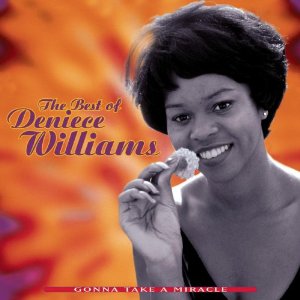 It’s Gonna Take A Miracle – The Best Of Deniece Williams
01 “Cause You Love Me, Baby”
02 “Let's Hear It For The Boy”
03 “That's What Friends Are For”
It’s Gonna Take A Miracle – The Best Of Deniece Williams
01 “Cause You Love Me, Baby”
02 “Let's Hear It For The Boy”
03 “That's What Friends Are For”
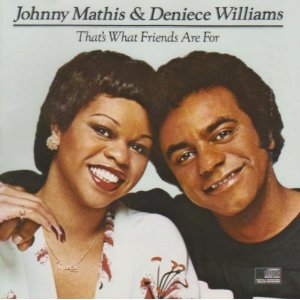 That's What Friends Are For - Johnny Mathis & Deniece Williams
04 “You're All I Need To Get By”
That's What Friends Are For - Johnny Mathis & Deniece Williams
04 “You're All I Need To Get By”
 It’s Gonna Take A Miracle – The Best Of Deniece Williams
05 “Too Much, Too Little, Too Late”
06 “If You Don't Believe”
07 “Silly”
It’s Gonna Take A Miracle – The Best Of Deniece Williams
05 “Too Much, Too Little, Too Late”
06 “If You Don't Believe”
07 “Silly”
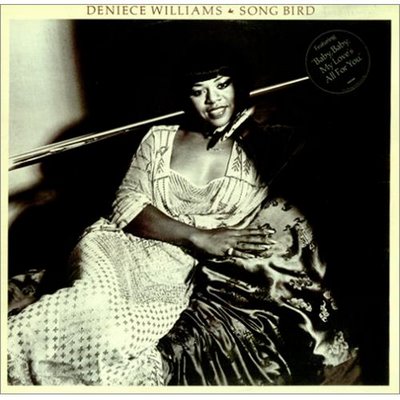 Song Bird (out of print)
08 “The Paper”
Song Bird (out of print)
08 “The Paper”
 It’s Gonna Take A Miracle – The Best Of Deniece Williams
09 “It's Gonna Take A Miracle”
10 “God Is Amazing”
11 “Black Butterfly”
12 “I'm So Proud”
13 “Free”
It’s Gonna Take A Miracle – The Best Of Deniece Williams
09 “It's Gonna Take A Miracle”
10 “God Is Amazing”
11 “Black Butterfly”
12 “I'm So Proud”
13 “Free”
This entry was posted on Monday, July 5th, 2010 at 2:27 am and is filed under Classic. You can follow any responses to this entry through the RSS 2.0 feed. You can leave a response, or trackback from your own site.
Leave a Reply
| top |